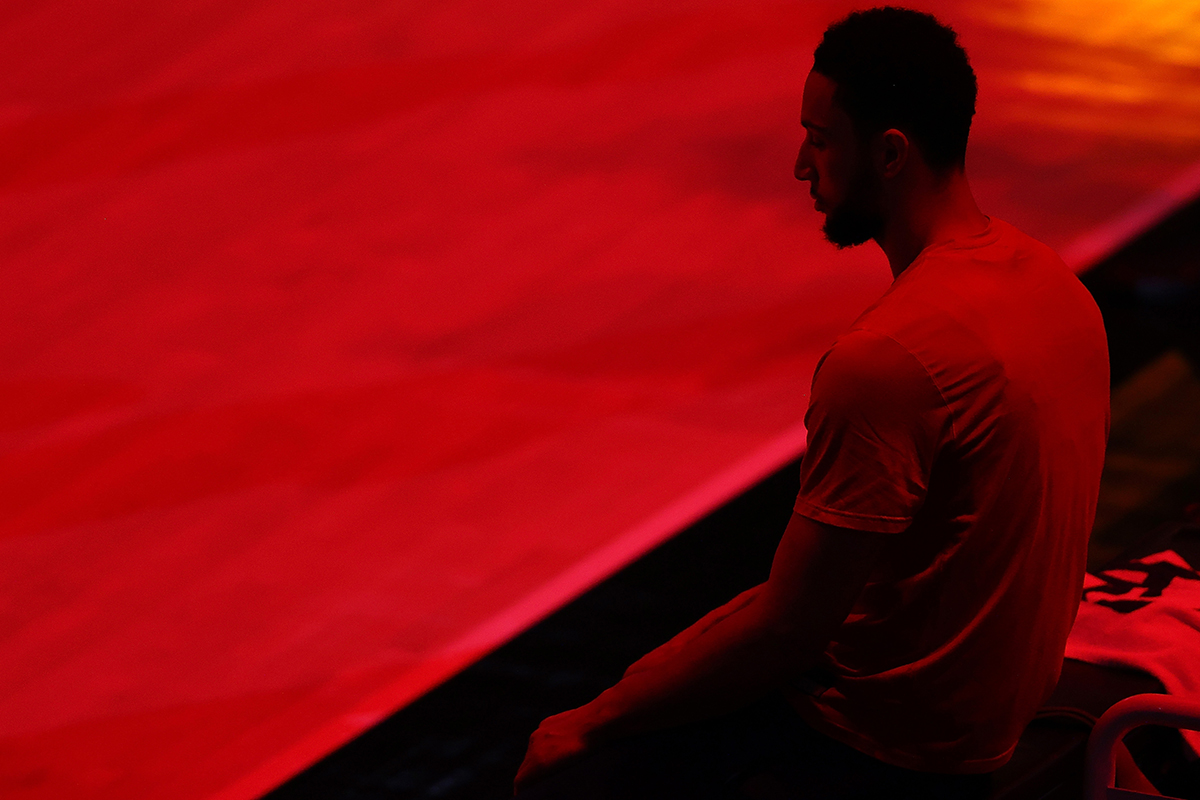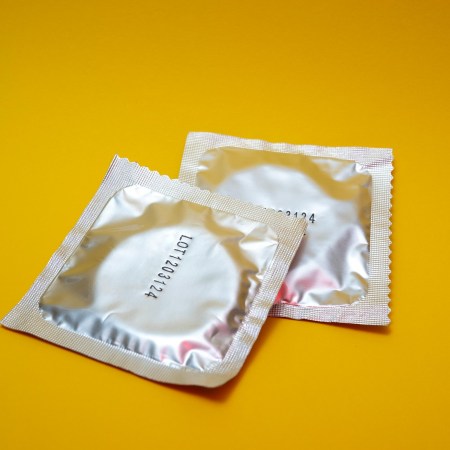Ben Simmons met with a Philadelphia 76ers-recommended medical specialist to discuss his mental health on Monday, according to ESPN, the first time he’s done so since he informed the team on October 22 that he wasn’t “mentally ready” to suit up and play this year. A week ago at this time, Simmons was meeting with team doctors to treat a back ailment, but he still refused to meet with team psychiatrists.
While this week’s meeting does signal a shift in direction for Simmons, it’s unclear whether he’s had a real change of heart. The front office officially reinstated its fines on him late last week — he lost $360,000 for skipping last Thursday’s game — in frustration that Simmons wouldn’t meet with the team’s mental health professionals. Meanwhile, while Simmons provided the names of the National Basketball Players Association professionals he’s been speaking with since the summer, the 76ers won’t have access to any of their reports, due to patient confidentiality rules.
Simply put, this situation remains a mess. Still, one remarkable element to this saga is how seriously each side is approaching the concept of mental health. Not that long ago, both the forwardness with which Simmons is divulging his mental health needs, and the public patience with which the 76ers are accommodating those concerns, would’ve been virtually unthinkable.
From an on-court perspective, after all, Simmons had an extremely challenging year. He absolutely fell apart in the playoffs, particularly the Eastern Conference Semifinals, against Trae Young’s Atlanta Hawks. Shooting has never been a big part of Simmons’s game, to put it mildly (as a one-man show at LSU, he averaged less than 12 shots per game), but that unwillingness, or weakness, or whatever you want to call it, was put under the microscope against the Hawks, where he consistently disappeared down the stretch. In all seven games, he took a total of three shots in the fourth quarter. And over the last four games, he took none.
The enduring image from that series was his decision to pass up a wide-open dunk, and instead make a contested pass to his teammate Matisse Thybulle. After the game, fellow star Joel Embiid called that play the “turning point” in the game. Coach Doc Rivers admitted that he didn’t know if Simmons could be a “point guard on a championship team.” After the season, the front office opened up trade talks in earnest, and the 76ers fanbase, assuming he was gone for good, tore Simmons limb from limb online, challenging his clutch gene, his skill, his manhood, etc. They’re Philly fans, so they left no stone unturned.
Nearly half a year later, though, Simmons is still a 76er. The most basic reason is that the president of basketball operations, Daryl Morey, hasn’t seen a deal he likes, and refuses to bring in a troupe of whatever-role players during the peak of Embiid’s prime. If he can’t get a star, it would seem, he’s willing to work with the beleaguered star he’s already got. He’s willing to fine him, sure, as Simmons skips practices or shows up to them with his phone in his pocket, but he’s also willing to at least humor Simmons’s mental-health woes.
In other professions, this might sound like the bare minimum a wealthy boss could do for an accomplished employee (Simmons, despite his shooting struggles, is one of the best defenders in the game), but in the world of sports, this marks an improvement. Leagues are finally beginning to understand that instead of calling players “weak,” “problematic” or “hard to reach,” they’re better served (as franchises and as human beings) setting them up with a mental-health apparatus that can actually work to understand the other side of the story.
Cynics will find issues with this new order, no doubt. Some might say that Simmons leveraged the “mental health card” to freeze his fines (though this only lasted a week), knowing the 76ers would have to appear thoughtful in the court of public opinion. Others might contend that only a player of Simmons’s caliber would ever receive this level of attention — if the 10th guy on the bench was going through things, perhaps he’d be outright traded for parts.
Neither is outside the realm of possibility. Plus, the 76ers’ demand that Simmons see team-recommended mental health professionals, while a sign that the franchise wants to be a part of his progress, is also somewhat out of touch. Finding a psychiatrist that a patient can be fully open with is an exhaustive, time-consuming process. If Simmons doesn’t trust any of the team’s clinicians, that’s his prerogative.
Ultimately, though, it’s no one’s place (and especially not Morey’s) to speculate on the mental health of Simmons from afar. If he decides he’s okay to play, he’ll play. If not, he now has an option that didn’t exist not too long ago — he can step away. The country struggled to process gymnast Simone Biles’s decision to step away from competition during the Olympics. And it’s still unpacking the decision by Atlanta Falcons star wide receiver Calvin Ridley to end his season for personal reasons. But this is where we should be headed in sports, and in society as a whole.
If a job is eating you from the inside — no matter what the job is; no matter how much it pays; no matter how many people cheering you on (or booing you) would do anything to have it — it isn’t only the right decision to move away from it, it’s a mental-health imperative. The 76ers want a championship. Simmons, we’re sure, wants to be a point guard again someday. But as this story continues to unfold, it’s refreshing that each side has also, however briefly, resolved to respect the importance of mental health. The league has come a long way.
The Charge will help you move better, think clearer and stay in the game longer. Subscribe to our wellness newsletter today.


















